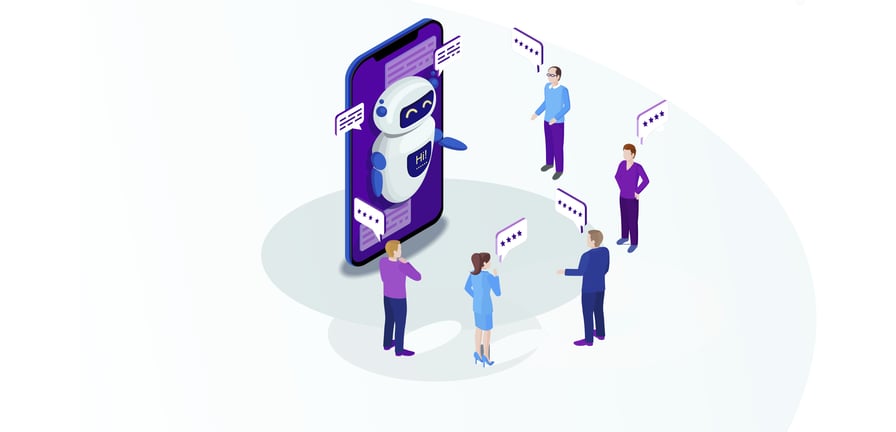How Chatbots Are Revolutionizing Customer Service for Businesses
Learn how chatbots are transforming customer service by providing instant support, improving response times, and reducing costs. Discover how businesses are using AI-driven bots to enhance customer satisfaction and streamline operations.
Dickson Methew
9/2/20243 min read


In today's fast-paced, digital world, businesses are always looking for ways to streamline operations, reduce costs, and enhance customer experiences. One technology that has been transforming customer service across industries is chatbots. These AI-driven tools are helping companies engage with customers in real-time, providing quick resolutions, and improving overall efficiency. But how exactly are chatbots changing the landscape of customer service, and what are the proven benefits?
The Benefits of Chatbots in Customer Service
24/7 Availability
One of the most significant advantages of chatbots is their ability to provide round-the-clock support. Customers expect immediate responses, and businesses that can meet this demand stand to gain loyalty and trust. According to a report by Business Insider, over 67% of consumers worldwide have interacted with a chatbot in the past year, with the primary expectation being quick answers to simple queries .Cost Efficiency
Employing a 24/7 support team is expensive, but chatbots can handle a substantial portion of customer interactions without the need for human intervention. Studies show that chatbots can save businesses up to 30% on customer support costs by automating responses to common questions . Additionally, they can handle multiple customers at once, reducing wait times and improving the customer experience.Personalization and User Engagement
Modern chatbots are more than just automated FAQ systems. With advancements in AI and machine learning, they can offer personalized recommendations, guide users through purchasing decisions, and even retain conversational memory to enhance user engagement. For example, an e-commerce business could use chatbots to recommend products based on previous purchases or browsing history, thereby improving sales and customer satisfaction.Seamless Integration Across Platforms
Chatbots can be integrated into various digital channels, including websites, mobile apps, and social media platforms like Facebook Messenger and WhatsApp. This multi-channel presence ensures that customers can reach businesses on their preferred platforms. A study by Gartner predicts that by 2025, 80% of customer interactions will be handled by AI . This shift allows businesses to focus on more complex customer needs while chatbots handle routine inquiries.
Success Stories from Different Industries
Retail: H&M's Virtual Assistant
Retail giant H&M introduced a chatbot on its mobile app that helps users browse through clothing items, make purchases, and get style recommendations. This AI-driven assistant has improved customer satisfaction by providing immediate fashion advice and personalized product suggestions. The chatbot led to an increase in online sales and reduced the need for customer service agents to handle routine queries.Banking: Bank of America's Erica
Bank of America introduced "Erica," a virtual assistant that helps customers check account balances, pay bills, and navigate complex financial transactions. Since its launch, Erica has handled over 100 million interactions, saving time for both customers and human agents. As a result, Bank of America has seen a significant reduction in service costs and an improvement in customer satisfaction scores.Healthcare: Babylon Health's AI Symptom Checker
In healthcare, chatbots have proven invaluable in triaging patient concerns. Babylon Health’s chatbot allows users to input their symptoms and receive medical advice, helping them decide whether to see a doctor. This AI tool has reduced the strain on healthcare providers, particularly during the COVID-19 pandemic, while offering patients quick access to medical information.
Efficiency and Future of Chatbots
The efficiency of chatbots lies in their ability to handle repetitive, mundane tasks, freeing up human agents for more complex issues. They can resolve up to 80% of customer inquiries, according to Juniper Research, which translates into fewer tickets for customer support teams . Moreover, advancements in natural language processing (NLP) enable chatbots to handle more nuanced conversations, improving their accuracy and user satisfaction.
As businesses increasingly adopt AI technology, chatbots will become even more integral to customer service. Industries such as retail, healthcare, and finance are already experiencing the benefits, and as AI continues to evolve, the scope for chatbot applications will only expand.
Conclusion
Chatbots are no longer a novelty but a necessity for businesses looking to stay competitive in today's digital age. From 24/7 availability to cost savings and personalized user experiences, the benefits are clear. By streamlining customer service operations and improving engagement, chatbots are helping businesses across industries achieve new levels of efficiency and customer satisfaction.
Whether you're a small business or a global corporation, now is the time to explore how chatbots can revolutionize your customer service and drive business growth.
